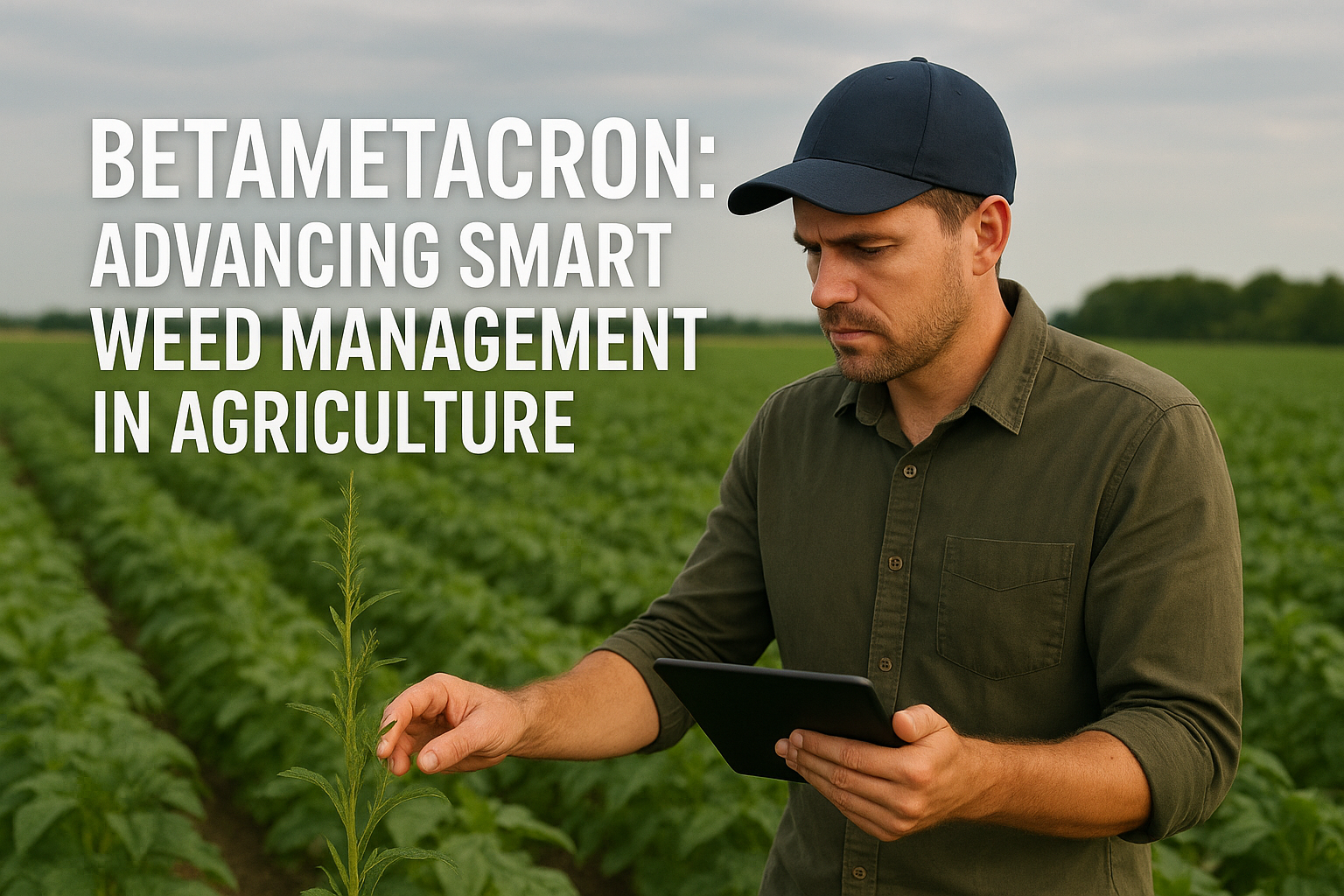Betametacron: The world of agriculture is constantly evolving, and farmers are always on the lookout for innovative solutions to tackle challenges. Enter betametacron—a groundbreaking development in weed management that promises to revolutionize how crops are grown. As we face increasing pressures from climate change and pest resistance, this novel herbicide offers a beacon of hope. With its unique properties and advanced formulation, beta metacron stands at the forefront of smart farming practices. Let’s dive into what makes this compound so special and explore its potential impact on modern agriculture.
The Science Behind Betametacron
Betametacron is a synthetic compound designed to combat challenging weed species in agriculture. Its unique mechanism targets specific pathways within the plant, effectively disrupting growth processes.
Research has shown that beta metacron acts on the photosynthetic systems of target weeds, leading to their gradual decline. This precision means surrounding crops remain unharmed while pesky invaders are eradicated.
The formulation’s stability under various environmental conditions enhances its effectiveness. Farmers can apply it with confidence, knowing it will perform well regardless of weather changes.
Moreover, ongoing studies are exploring how this herbicide interacts with soil microbiomes. Understanding these relationships could lead to more sustainable application methods and improved crop health over time.
Through advanced scientific principles, betametacron represents a leap forward in integrated weed management strategies for modern farming practices.
Benefits for Farmers and Crop Productivity
Betametacron is quickly becoming a game-changer for farmers. Its ability to effectively manage weed populations means that crops can thrive without the competition that often stunts their growth.
Farmers benefit from reduced labor costs, as fewer manual interventions are necessary to control weeds. This efficiency allows them to focus more on other essential farming tasks.
Moreover, healthier crops lead to increased yields. When plants aren’t struggling for resources, they tend to produce more robust harvests. Betametacron supports sustainable practices by minimizing the need for chemical herbicides over time.
The flexibility of application adds another layer of appeal. It can be used in various crop systems, making it a versatile tool in any agricultural toolkit.
As farmers embrace beta metacron, they’re not just enhancing productivity; they’re also contributing positively towards environmental conservation through smarter land use strategies.
Practical Applications and Future Potential
Betametacron shows promising practical applications in various agricultural settings. Its ability to control weed growth effectively allows farmers to reduce the reliance on traditional herbicides. This reduction not only benefits the environment but also enhances crop health.
Farmers can incorporate betametacron into their integrated pest management systems. By combining it with other methods, they create a holistic approach that targets weeds without harming beneficial organisms.
The future potential of beta metacron lies in its adaptability. Researchers are exploring ways to enhance its effectiveness against emerging weed species and resistant strains.
As technology advances, we may see precision agriculture tools integrating betametacron for optimized application rates and timing. This could revolutionize how crops are managed, leading to higher yields and lower environmental impact.
With ongoing research and development, betametacron stands at the forefront of innovative farming practices, ready to transform modern agriculture for generations to come.
conclusion
The rise of beta metacron marks a significant step forward in the quest for smarter weed management solutions. As agriculture faces increasing challenges from climate change, pest resistance, and the demand for sustainable practices, innovative tools like this are essential.
Farmers can leverage betametacron to enhance crop productivity while minimizing environmental impacts. Its targeted action reduces reliance on traditional herbicides and promotes healthier ecosystems.
With ongoing research and development, the future potential of beta metacron is promising. It may pave the way for new formulations that align with global sustainability goals. Whether it’s through improved efficiency or lower costs, farmers have much to gain from adopting this advanced solution.
As we look ahead, embracing technologies like beta metacron will be crucial in transforming agricultural practices and ensuring food security for. The journey towards more responsible farming has just begun, but innovations like these are setting a strong foundation for what’s next in modern agriculture.















Leave a comment